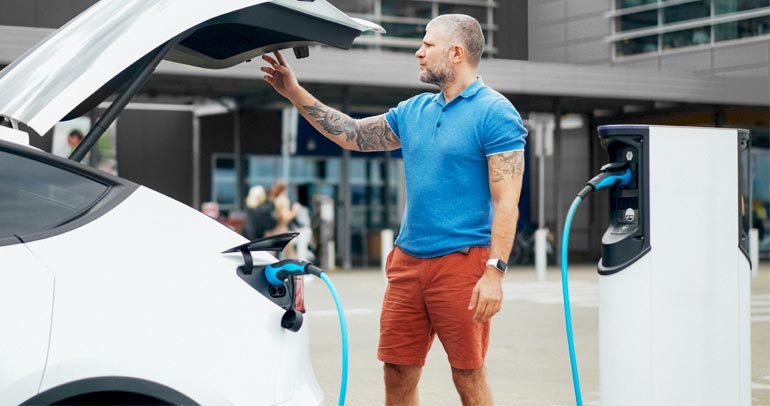Electric Mobility
Electric mobility is a burgeoning business opportunity in India, driven by a growing emphasis on environmental sustainability, government incentives, and changing consumer preferences. Here’s an overview of the electric mobility business opportunities in India:

1.Electric Vehicles (EVs) Manufacturing:
- EV Manufacturing Plants: Setting up manufacturing units for electric cars, two-wheelers, three-wheelers, and commercial vehicles to meet the rising demand.
- EV Component Manufacturing: Producing key components like batteries, motors, chargers, and electronic control units (ECUs) can be a lucrative business.
2.Charging Infrastructure:
- Charging Stations: Establishing a network of EV charging stations, both fast-charging and slow-charging, to address range anxiety and promote EV adoption.
- Home Charging Solutions: Developing home-based charging solutions, including residential charging stations and battery swapping services.
3.Battery Technology and Recycling:
- Battery Manufacturing: Investing in lithium-ion battery manufacturing units to support the EV industry’s growth.
- Battery Recycling: Developing battery recycling and refurbishment facilities to manage end-of-life batteries sustainably.
4.Electric Vehicle Fleet Services:
- E-Mobility Platforms: Creating ride-hailing and ride-sharing platforms exclusively for electric vehicles.
- EV Leasing and Rentals: Offering EV leasing and rental services to individuals and businesses.
5.Last-Mile Delivery Solutions:
- Electric Cargo Bikes and Vans: Developing and providing electric cargo bikes and vans for last-mile delivery services, catering to the e-commerce sector.
6.Electric Two-Wheelers:
- E-Scooters and E-Bikes: Manufacturing and marketing electric scooters and bicycles for urban commuting.
- E-Rickshaws: Producing electric rickshaws for short-distance transportation.
7.EV Charging Equipment Distribution:
- Import and Distribution: Importing and distributing EV charging equipment, including chargers, cables, and connectors, to cater to the growing demand.
8.Battery Swapping Services:
- Battery Swapping Stations: Offering battery swapping services for electric two-wheelers and three-wheelers to address charging time constraints.
9.Fleet Management Solutions:
- Telematics and Software: Developing software solutions for fleet management, including route optimization, maintenance scheduling, and vehicle tracking.
10.Energy Storage Solutions:
- Home Energy Storage: Providing residential energy storage solutions, which can complement solar power systems.
- Grid-Scale Storage: Investing in large-scale energy storage projects to support grid stability and renewable energy integration.
11.EV Training and Certification:
- Skill Development: Offering training programs for technicians and mechanics to specialize in electric vehicle repair and maintenance.
- Certification Services: Providing certification services for EV-related products and technicians.
12.Government Incentives and Subsidies:
- Leveraging government incentives and subsidies, such as the Faster Adoption and Manufacturing of Hybrid and Electric Vehicles (FAME) scheme, to support your electric mobility business.
13.Eco-Tourism and Electric Rental Services:
- Offering electric vehicle rental services for eco-tourism destinations and promoting sustainable tourism practices.
14.Research and Development:
- Investing in research and development to improve battery technology, range, and charging infrastructure.
15.Collaboration with Automotive OEMs:
- Partnering with established automotive original equipment manufacturers (OEMs) to develop and manufacture electric vehicles or components.
India's electric mobility sector is poised for substantial growth, making it an attractive market for a wide range of businesses. However, it's essential to understand the regulatory landscape, consumer preferences, and infrastructure requirements to succeed in this rapidly evolving industry. Additionally, a focus on sustainability and quality will be critical to building a competitive edge in the electric mobility market in India.
India's electric mobility sector is poised for substantial growth, making it an attractive market for a wide range of businesses. However, it's essential to understand the regulatory landscape, consumer preferences, and infrastructure requirements to succeed in this rapidly evolving industry. Additionally, a focus on sustainability and quality will be critical to building a competitive edge in the electric mobility market in India.
